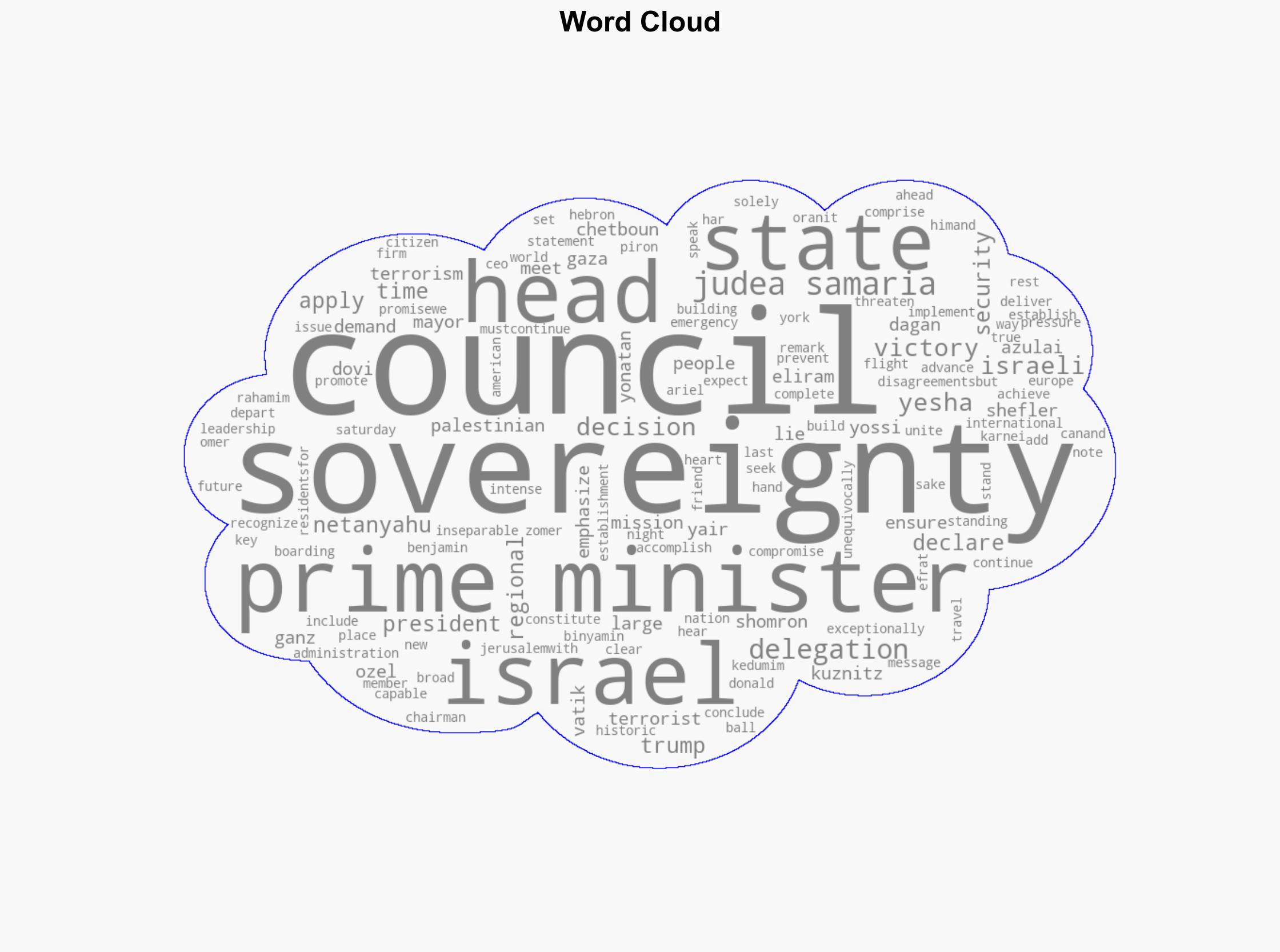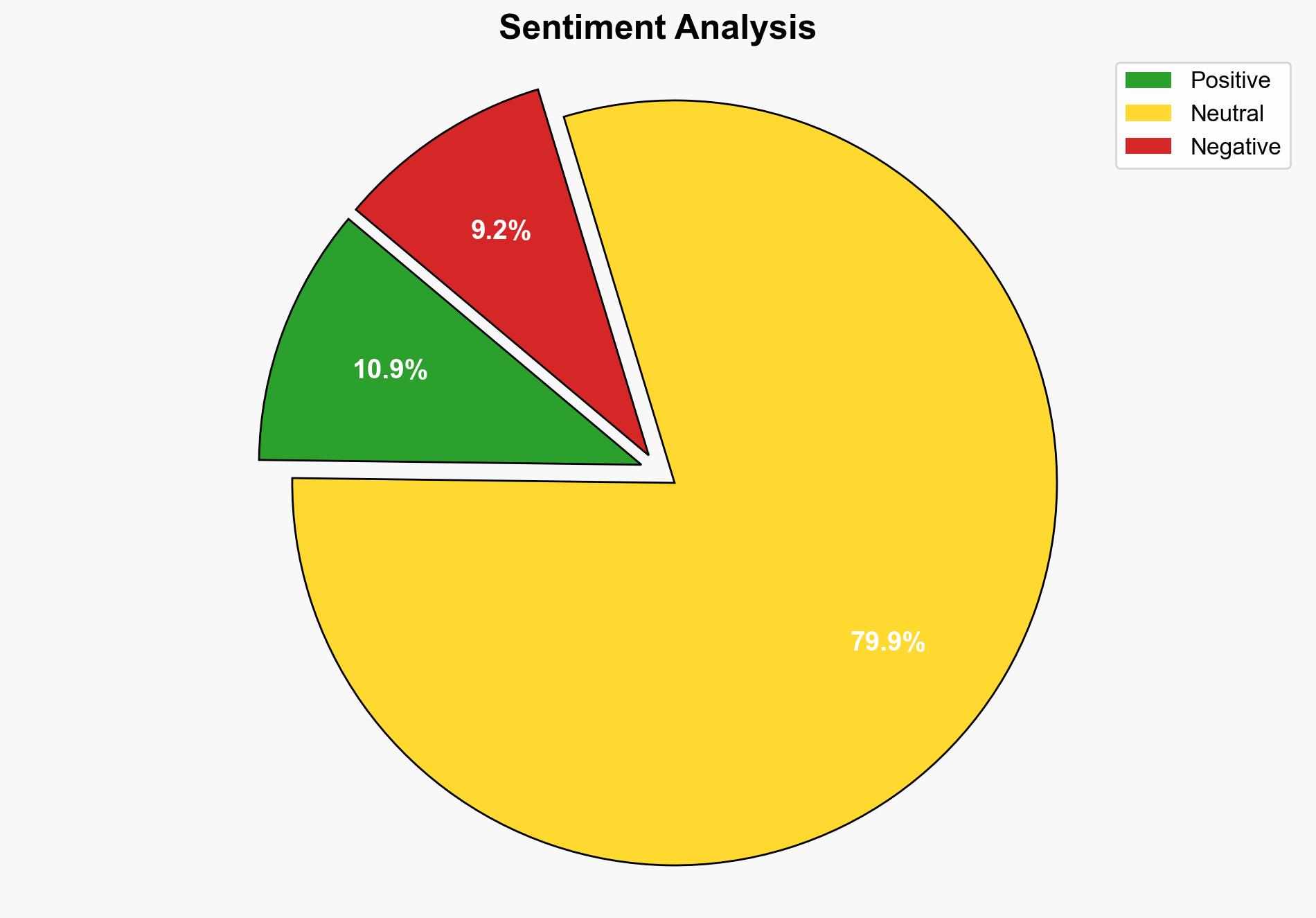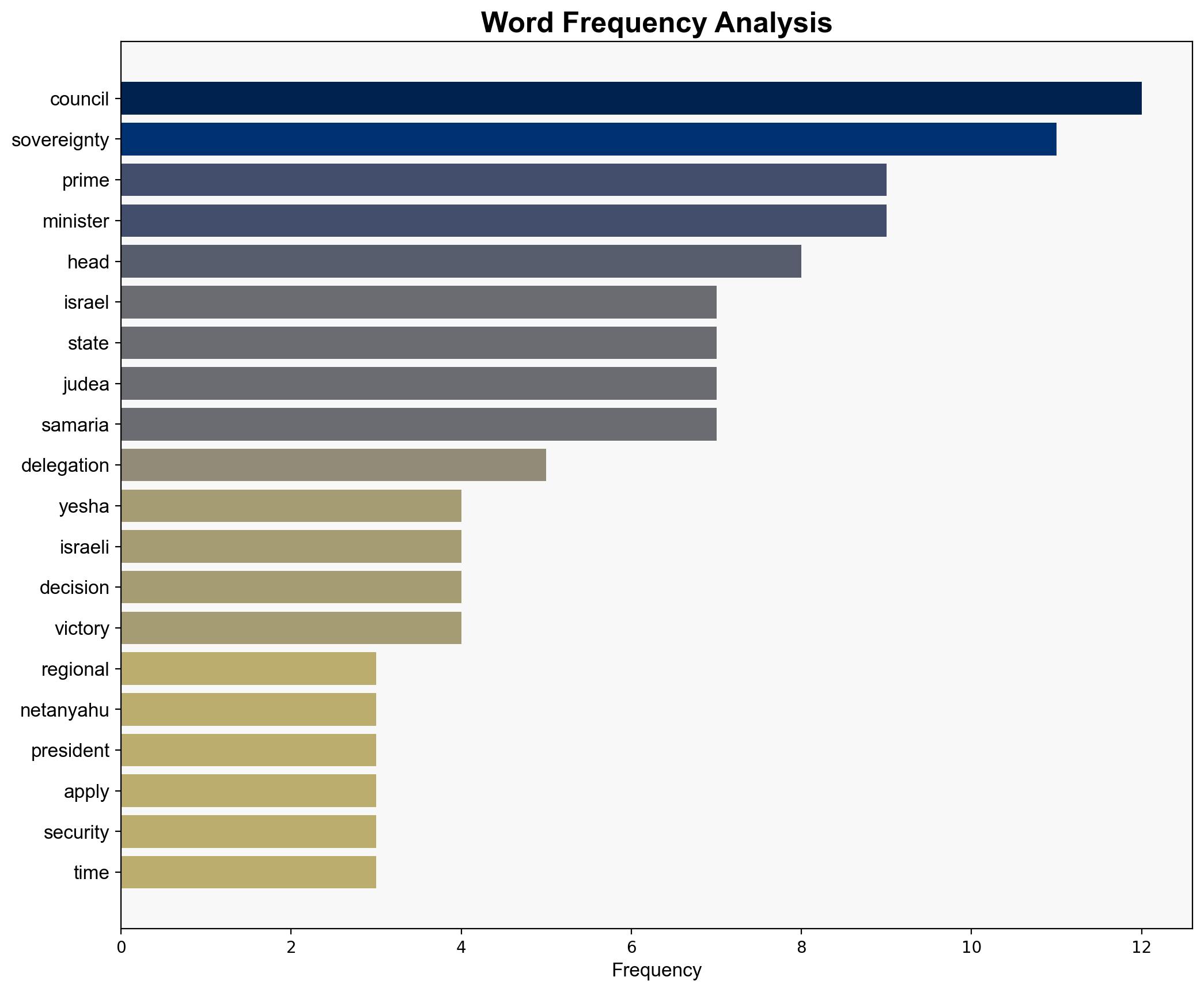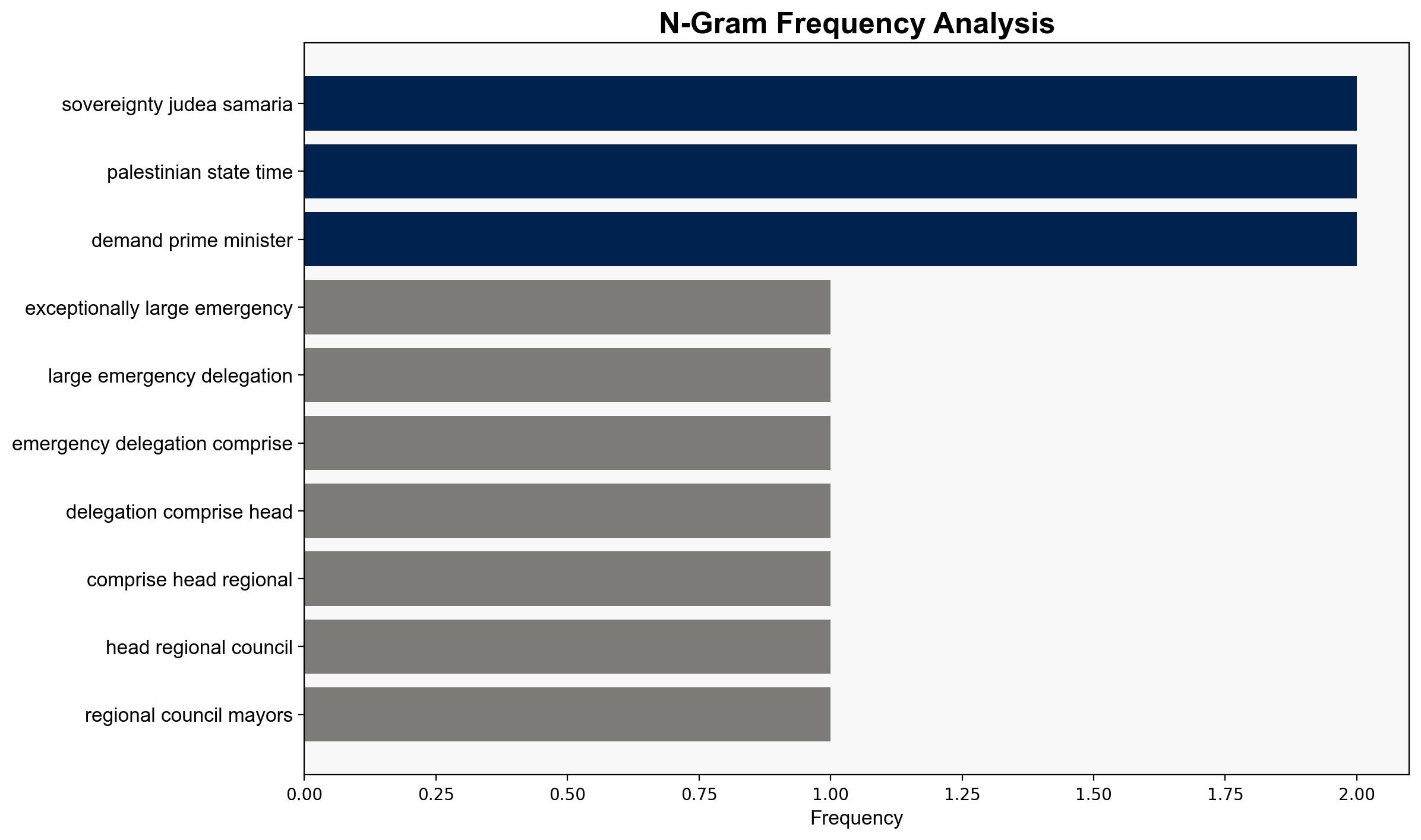Yesha Council delegation heads to US Netanyahu must make a historic decision – Israelnationalnews.com
Published on: 2025-09-28
Intelligence Report: Yesha Council delegation heads to US Netanyahu must make a historic decision – Israelnationalnews.com
1. BLUF (Bottom Line Up Front)
The most supported hypothesis is that the Yesha Council delegation’s visit to the US aims to pressure Prime Minister Netanyahu into applying Israeli sovereignty over Judea and Samaria, leveraging US political support. Confidence in this assessment is moderate due to potential diplomatic complexities and international opposition. Recommended action is for Israeli leadership to carefully assess international reactions and potential ramifications before making a definitive sovereignty decision.
2. Competing Hypotheses
1. **Hypothesis A**: The Yesha Council delegation is primarily focused on reinforcing Israeli sovereignty over Judea and Samaria, using the visit to secure US backing and to influence Netanyahu’s decision-making.
2. **Hypothesis B**: The delegation’s visit is a strategic maneuver to counteract international and domestic pressures advocating for a Palestinian state, rather than a genuine push for immediate sovereignty changes.
Using ACH 2.0, Hypothesis A is better supported by the delegation’s explicit statements emphasizing sovereignty and the strategic timing of the visit coinciding with US political dynamics.
3. Key Assumptions and Red Flags
– **Assumptions**: It is assumed that US political support is pivotal for Israeli sovereignty decisions. Another assumption is that Netanyahu’s decision will be heavily influenced by domestic political pressures.
– **Red Flags**: The lack of explicit US commitment to support sovereignty changes and potential international backlash are significant uncertainties. The delegation’s statements may not fully represent broader Israeli government intentions.
4. Implications and Strategic Risks
– **Geopolitical Risks**: Unilateral sovereignty actions could escalate tensions with Palestinian authorities and neighboring countries, potentially leading to increased regional instability.
– **Economic Risks**: International sanctions or reduced foreign investment could impact Israel’s economy if sovereignty changes are perceived negatively.
– **Psychological Risks**: Domestic divisions may deepen, affecting national unity and public morale.
5. Recommendations and Outlook
- Engage in diplomatic dialogues with key international stakeholders to gauge potential reactions and mitigate negative outcomes.
- Develop contingency plans for economic and security scenarios, including potential sanctions or escalated regional tensions.
- Scenario Projections:
- **Best Case**: Successful US backing leads to smooth sovereignty application with minimal international backlash.
- **Worst Case**: International condemnation and regional conflict escalate, leading to significant economic and security challenges.
- **Most Likely**: Mixed international responses with gradual sovereignty implementation, requiring ongoing diplomatic efforts.
6. Key Individuals and Entities
– Benjamin Netanyahu
– Israel Ganz
– Yossi Dagan
– Yair Chetboun
– Yonatan Kuznitz
– Dovi Shefler
– Eliram Azulai
– Ozel Vatik
– Omer Rahamim
7. Thematic Tags
national security threats, regional focus, geopolitical strategy, sovereignty, diplomatic relations





